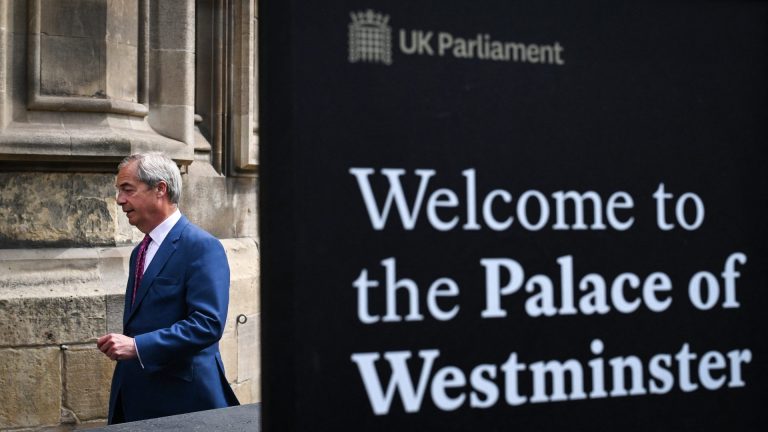Boris Johnson’s message that he would “Get Brexit Done” is seen as one of the main drivers of the Labour Party’s historic 2019 election defeat. Since then, those in charge of Labour have avoided “the B word” at all costs, fearing they might galvanise the Leave vote against them once more.
Fast forward to 2025 and we are in a different political universe. Labour is less than a year into its government term, having won a 170-seat majority last year. Part of that winning platform involved “resetting” the UK’s relationship and “deepening ties” with the European Union, even if that meant they also had to promise no return to the single market, customs union or freedom of movement.
The wider world is also much more dangerous than before, pushing the UK closer to key allies. For the public, that’s Europe. When asked to choose, 47% of respondents tell Ipsos that Europe is the most important to Britain, 21% the USA and 15% the Commonwealth.
Perhaps more importantly, the public don’t think that Brexit is working. Half (49%) think that Brexit has had more of a negative impact on the UK. Just 23% think Brexit has had a positive impact. That number hasn’t been above three in ten since summer 2022.
And just as notably, two thirds (67%) of 2024 Labour voters say Brexit was the wrong decision for the United Kingdom. Nearly ten years on since the referendum, we have a government whose voting coalition isn’t dependent on keeping the original Brexit deal set in stone. There is permission for change.
Read more: Wobbling Starmer must not turn back on the Brexit reset
This begs the question; what kind of change could voters accept? This is less about the technical minutiae of trading arrangements, and much more about how a future relationship “feels”. Ipsos research suggests the public are fairly pragmatic.
Their number one EU priority is to improve the trading relationship, to make it easier to buy and sell goods and services (32%). If Starmer’s government can achieve this, with meaningful benefits to the UK economy, that would be a major win for his government. Of course, that is a big “if”.
A strong security partnership is also likely to be popular – especially in an era of intense debate about European security. Other public priorities for the UK-EU relationship include “working with the EU to reduce illegal immigration” (26%) and “working closely with the EU to prevent crime and terrorism” (21%).
When it comes to the Brexit question, immigration is never far from the debate. Ipsos polling shows it is still seen as the second most important issue facing Britain (34%) behind the economy (39%). Two in three think overall numbers entering the UK are too high (67%) and we know this is a key issue for many swing voters, and indeed some Labour voters the party will want to hold on to at the next general election.
The immigration debate forms a backdrop to the coming UK-EU summit following Labour’s recent White Paper. In this context there is a risk that any proposed Youth Mobility Scheme leaves the government open to charges of “bringing back freedom of movement”, something Labour explicitly promised not to do in their manifesto.
Our polling shows the public would support Britain joining a pan-European customs area if it allowed free movement for young Europeans (including Britons) by a margin of 49% to 22%. Even so, the public still think immigration numbers overall are too high, and remain split over the positive impact of European immigration in general.
There are other potential red-lines in public opinion too, such as fishing rights and joining the euro, which suggests that any new relationship with the EU still needs to show it is respecting Britons’ concerns about sovereignty.
Another potential benefit to any meaningful Brexit reset could be for Labour to reconnect with progressive minded voters who feel disillusioned with what Labour have done in government so far. 2024 Labour voters are split between whether they are pleased (38%) or disappointed (36%) with what they have seen in the last 11 months.
Amid rows over winter fuel and cuts to disability benefits, they give the government a score of 5.6 out of 10 for how they are running the country. Forging strong ties with the European Union may help remind a typically pro-Europe voting bloc why they voted Labour last summer. It could give them second thoughts about switching to more full-throated progressive parties such as the Greens or Lib Dems.
The data shows that this Labour government will ultimately be judged on how it deals with the economy, cost of living and public services – and as we have seen this week, Labour still needs to convince the public (including their own voters), that they can take control of immigration and asylum, which any new EU deal needs to appreciate.
That said, there is clear public permission for a meaningful reset in the relationship with Europe. One that works and delivers a stronger trading partnership and a partnership on security. Deliver that and Keir Starmer and his government may start to wrestle back control of a political agenda that appears to be driven by others at the present time.
Keiran Pedley is director of UK politics at Ipsos











